On Monday, April 16, a Detention Services Officer was escorting a young probationer to the infirmary at Los Padrinos Juvenile Hall in Downey. At some point along the way, the kid allegedly assaulted and choked the officer, who is now on leave.
On Thursday, April 5, there was reportedly an assault by another young probationer, this one on Unit KL at Central Juvenile Hall. In both cases, the officers received medical treatment.
These incidents are part of a striking increase in assaults on officers inside LA County’s juvenile halls by kids in the county’s custody. Data provided by the LA County Probation Department shows that in 2015, there were 98 juvenile assaults on officers and staff in the halls. In 2016, that number nearly doubled to 182 assaults. In 2017, it shot up again to 314.
The department wasn’t able to provide specifics about dates, locations, nature or severity of assaults, as it doesn’t track that data, a department spokesperson said.
It appears that this spate of attacks is mostly taking place in the halls, and not in the longer term juvenile probation camps. LA County’s juvenile halls are short term facilities, akin to jails for adults, and also the place where kids facing serious charges wait for their cases to be settled.
“It’s not every day,” a DSO who works at Central Juvenile Hall told us. But “the severity has increased,” said the officer, who asked that he not be named. “Before, it was mostly just pushing and now it’s more violent.”
With the end of six years of federal oversight of LA County’s juvenile probation camps in 2015, the county’s recently approved massive youth diversion plan, and the much-lauded opening of Campus Kilpatrick last summer, it seemed as if things were on the right track.
Yet, a 500-page assessment of the LA Probation Department released on February 13, 2018, commissioned by the county, and conducted by Oakland-based Resource Development Associates (RDA), reported that “Department staff and youth described the juvenile halls as unsafe environments for everyone inside them.”
Then came recent reports of a spike in the use of pepper spray, and now this.
So what’s going on?
What’s behind the rise in assaults?
Luis Dominguez, acting Deputy Director of the Detention Services Bureau—meaning he oversees the county’s juvenile halls—said it would be premature to speculate on the reason for the spike in assaults before conducting a thorough analysis. “What is evident, based on the numbers that we pulled [for WitnessLA’s inquiry] is that the number of assaults have increased significantly over the last three years,” he said.
In general, youth assaults on officers are rare, said Sue Burrell, Policy Director at the Pacific Juvenile Defender Center, a nonprofit that provides support to juvenile trial lawyers, and other juvenile attorneys, to “ensure quality representation for children throughout California.”
“It’s very common to have fights between youth in facilities because it’s a completely unnatural situation and people are stressed,” she said. But “attacks on staff are usually when there’s a generalized crisis in a facility and the youth are very frustrated.”
The various groups who work in and around juvenile probation each point to different theories behind this “generalized crisis,” which only partially overlap.
One factor frequently mentioned in connection with the increase in assaults has to do with plunging morale among the officers. This is due in part to the frequent turnover in department leadership, said Deborah Lares, president of the Professional Managers Association, AFSCME 1967, a.k.a. the supervisors’ union Los Angeles County has had at least five Chief Probation Officers over the past 10 years, which “has been really hard on us,” she said.
(Chief Terri McDonald took over the large and complicated agency on January 1, 2017, after former probation chief, Jerry Powers, retired under a cloud.)
“Chiefs come in with their own philosophies and protocols,” said Lares, “and we’re jumping from one style to another.” The result, she said, is a level of chaos and confusion regarding what is considered an acceptable response from an officer in the event of an assault.
In the RDA report, the study’s authors noted that “morale is particularly low among line staff in the juvenile institutions”–in other words, the camps and the halls. “Though there are some variations between facilities,” the authors wrote, “most institution line staff interviewed do not believe that the Department cares about their well-being or safety; instead they feel expendable and ‘just a number.’”
Another factor mentioned by several officers we spoke with, and also by a representative from SEIU 721 at the January 31 meeting of the Probation Department’s Safety Commission, was the “need for experience and maturity in the halls.” The union rep said he was “concerned that newest and youngest employees are being thrown into hardest environment,” meaning the juvenile halls.
Luis Dominguez said that bringing the newest employees to work in the halls is not a recent development. “The majority of staff come in through our juvenile halls,” he said. “That’s where our promotional ladders are.”
But the question is whether these new DSOs are being properly trained in how to diffuse and deescalate difficult situations with kids who are often dealing with severe trauma and other challenges.
At a recent Probation Commission meeting, attorney Maureen Pacheco, with the Los Angeles Alternate Public Defender’s office, told Mitchell and Dominguez that she thought the officers at the “compound” at Barry J. Nidorf Juvenile Hall in Sylmar, where she had clients, needed “particular” attention when it came to training. The compound is the facility’s highest security unit, and houses kids fighting serious cases. Pacheco said she and her colleagues were “seeing a profound increase in the number of incidents, assaults, and fights” in the unit.
Her paralegal, she said, was on the phone with one of her clients “who was attacked by another youth while he was in a staff office” making the phone call. Pacheco said she talked to one of the hall’s supervisors about the problem, who told her that the officers working in the compound were “very, very inexperienced.”
Pacheco also said she had noticed that the compound kids, some of whom had been at the hall for two to three years, were not receiving much in the way of programing.
“I don’t know what’s going on,” she said, “but I think this needs some attention.”
Burrell confirmed that the situation Pacheco described can be a recipe for disaster. “If kids are spending a huge amount of time in their rooms because of understaffing and underprogramming,” frustrations tend to boil over and end in violence, she said.
Turnover and understaffing
Several sources told WitnessLA that the assault crisis is due in part to understaffing and high staff turnover.* These sources said that many shifts in the halls end up being understaffed, in part, because officers are leaving faster than they can be replaced. A significant percentage of officers are also out with an injury, we were told. Some of those injuries, according to one retired supervisor from Central, are exaggerated. Due to the low morale, he said, “People just say ‘screw it,’ and stay home.”
The result, sources say, is that people fresh out of training are being assigned to more challenging units where experienced officers have traditionally been assigned.
“Right now [new officers] are being thrown to the wolves, and then they quit because they’re not ready for it,” one Central officer said. “I’ve talked to many people who decided to look for employment elsewhere, because they say this isn’t what I was told to expect. They’re just completely blown away that this is the type of environment they’re going into.”
The authors of the RDA report heard from officers that “inconsistent staffing levels [were] due to a high number of staff under investigation, staff that are injured, or staff that call out sick. Both the Department’s line staff and leadership acknowledged in interviews that newer staff in the halls feel underprepared to face day-to-day challenges.”
Asked whether these factors have contributed to a greater number of inexperienced staff in the halls at this time, Dominguez offered a different explanation. “The change is probably, given [the AB 109] legislation and some of the [subsequent] programs out there within our department, that there’s been more promotional opportunities for our staff so they may be promoting at a quicker pace,” he said. “And as we’re running new academies, [new graduates] are back-filling those vacancies.”
Regarding the high rate of officer injury, Dominguez acknowledged that there is “a significant number of work-related injuries right now,” but said he will have to complete an analysis of the situation before he can offer a theory as to why this might be.
The net effect, deputies say, is that inexperienced officers can find themselves dealing with kids they haven’t been sufficiently trained to handle.
For instance, staff trained for the position of Group Supervisor, Nights (GSN) work the10pm-6am shift, when kids are in their rooms and activity on the units is generally calmer. But officers told us that due to understaffing, GSN staff are often “held over,” required to work consecutive shifts the following day so that there are enough officers on the unit.
“This works fine when it’s done once in a while,” Lares said, “but it’s my understanding that it’s happening on a regular basis.”
Other current and former DSOs we spoke with described a similar pattern.
And that’s when things can easily go south, they said.
When the GSN staff work the more active and demanding day shift, things can get dangerous if they have not been adequately trained for it, or if they are sleep deprived, because “your decision-making process might be inhibited and reaction time slowed,” explained one officer.
Losing Control

John Tuchek, 1st Vice President of the Association of Probation Supervisors of Los Angeles County, SEIU 721
John Tuchek, 1st Vice President of the Association of Probation Supervisors of Los Angeles County, SEIU 721, pointed to current disciplinary policies, as another possible factor in the “generalized crisis.”
“Staff are scared to act” for fear they will be terminated, Tuchek said. “The attitude right now is, ‘I am not going to intervene in any incident, because I don’t want to lose my job.’ And the kids understand this. They’re not dumb.”
The reported lack of proactive supervision can allow a minor incident to escalate. “If you don’t set limitations for kids, you lose control,” Tuchek said. “We know that from raising our own kids. And if you let kids run amok, they don’t feel safe. And if the kids don’t feel safe, the staff don’t feel safe.”
Dave Mitchell is Deputy Director of Juvenile Institutions, meaning he oversees the county’s juvenile probation camps. In response to the point that officers are “scared to act” during an assault in defense of themselves or their colleagues, Mitchell said, “There’s this perception that they’ll be in trouble if they get involved and we’re dispelling that perception. You would be in more trouble if you didn’t get involved and you allowed someone to get hurt as a result of not getting involved…Follow the policy, get involved. Even the utilization of [pepper] spray, if it’s done appropriately, then you’re within policy. You’re not going to get in trouble.”
Or, as another higher-up in the department put it, “If you assault a kid,” or you “lie about seeing someone else assaulting a kid,” you don’t belong in this department.
But many staff members are still fearful.
Kids with needs
Another frequently cited element in the rise in officer assaults is the changing population of youth in the halls. In both LA County’s juvenile halls and camps, the number of kids in residence has fallen dramatically as juvenile crime has continued to drop, and reforms have diverted kids with nonviolent offenses to community programs rather than the juvenile lockups they would have been sent to in years past.
At the same time, according to data provided by the Los Angeles County Department of Mental Health, the average daily number of open mental health cases has jumped significantly since 2016.
“Populations in the halls are low, which is good,” explained Lares. The problem is that, by default, many of the youth who now wind up in the juvenile halls are more “serious offenders with serious mental issues.” At the very least, some of these kids need the support of officers with more resources and training than an inexperienced and/or sleep-deprived officer might possess.
Sue Burrell pointed out that juvenile halls are being used as de facto mental health treatment facilities, which does a disservice both to the kids who need intensive, professional treatment and to the officers expected to handle these kids despite having no mental health background. “Juvenile hall isn’t a treatment facility,” she said. “I do feel for those staff, because they aren’t trained to deal with high level mental health disorders. I feel like they’re doing the best they can, but those children shouldn’t be in juvenile hall.”
One officer told WitnessLA that officers receive “barebones minimum health training,” an issue that was also mentioned in the RDA report.
A lot of these kids can be violent, the officer said. Some of the most volatile kids are housed in what is known as an Enhanced Supervision Unit, where kids who may need more supervision are placed. “But even then, it’s rough. Sometimes you feel like you’re trying to drain the ocean with a teaspoon.”
At the same time, officers in the halls complain that, in general, they have a shrinking set of tools with which to respond to kids who act out.
Hope and solitary
One officer who spoke to WitnessLA, but asked that his name not be used, believed the rise in assaults on officers began in May 2016, when the Board of Supervisors voted to prohibit the use of solitary confinement for kids in county facilities, except in circumstances when the safety of the youth or staff was involved, and then only for strictly limited periods.
The special housing units (SHUs) in LA County juvenile halls were replaced with “Hope Centers.” The idea was that by creating a non-punitive environment that includes soothing colors and comfortable furniture, in combination with “behavioral incentive programs,” and the like, an upset kid would have a place to calm down safely without experiencing the well-documented adverse effects of lengthy confinement in a cell.
(California instituted similar limitations throughout the state in September 2016, and the law went into effect on January 1 of this year.)
The ban on solitary was to roll out over five months. But at three facilities, Central Juvenile Hall among them, it was reportedly instituted within just a few weeks of the board of supervisors vote, with very little in the way of preparation for the staff.
“It’s our goal as a department, when we take a perceived tool away from them is to give them skills and training to replace that tool,” Dave Mitchell said. “We really need to give our staff the requisite tools to deal with this type of kid [who previously would have been put in the SHU].”
So what is on the horizon for the officers at the county’s three juvenile halls to replace the tools they feel have been taken away?
Tools and Training
According to John Tuchek, one possible intervention to stem the violence is to bring more radios into the facilities.
“Radios are a major factor for safety,” he said. “If we had radios maybe then we could call for help and prevent assaults on staff, and prevent kids from getting hurt.”
But at the moment, Tuchek said, there aren’t enough to go around, so officers are at times unable to communicate if they’re in need of help.
Other ideas discussed at the January 31 Safety Committee meeting were to “reach out to minor’s family to inform them when behavior is poor,” and to create localized committees devoted to safety at each facility.
According to Dave Mitchell, the committees would be led by superintendents at each facility and would be made up of line staff, teachers, nurses, and therapists. The idea, said Mitchell, would be to engage hall staff in finding ways to create safer environments at each facility.
Multiple new committees didn’t impress some of the officers, however. “We’ve been committee’d to death,” one officer told WitnessLA.
“To improve this situation, we need enough staff on duty to be able to supervise properly,” said Deborah Lares. “We need people with backgrounds in law enforcement, probation, public safety, and mental health–we need resources to do the right training in the right way.”
The conclusion that additional training is needed seemed fairly universal, particularly in the case of the new recruits who wind up working in the halls as their first stop after graduating from the training academy.
“Staff reported they felt unprepared to deal with conflicts and other challenges they face during their workday,” according to the RDA study, “and some expressed frustration they are no longer allowed to use certain disciplinary techniques to manage conflict.” In recent years, they wrote, regulation changes have required juvenile halls to reduce the use of pepper spray for controlling violent conflicts and also to end the use of the secure housing unit (SHU). “While these changes were designed to increase safety for the youth in detention, without these disciplinary tools some staff feel more at-risk because of insufficient training to support the transition.“
Eventually, the “LA Model”–the governing theory behind the probation department’s model facility, Campus Kilpatrick–is supposed to be instituted in all the county’s juvenile facilities. The goal is to shift what will be a reduced group of six camps and the three halls into therapeutic, research-guided, “trauma-informed” environments that help and heal, not punish, kids in county lock-up.
At Campus Kilpatrick there have been zero assaults on staff and reportedly only ten uses of force by staff.
Despite that, the only LA Model-related training scheduled for the county’s juvenile halls so far is an eight-hour, one day workshop for officers on trauma-informed care.
The LA Model is comprehensive. It includes training in Dialectical Behavior Therapy (DBT), for example, which has been demonstrated to help incarcerated young people better understand, reframe, and redirect their emotions and impulses. DBT also appears to successfully address staff burnout, which is common in both adult and youth lockups.
Another training component comes from the famed “Missouri Model,” which pioneered the use of rehabilitative and therapeutic methods in youth facilities, rather than the traditional “correctional” methods.
And according to Mitchell, after officers at Camp Glenn Rocky in San Dimas were trained per the LA Model in December and January, the staff saw a difference right away. “Their use of the Hope Center has diminished completely,” he said.
But the average stay in the halls is so much shorter than in the camps, Luis Dominguez explained, that the department isn’t sure if the current, camp-based LA Model will translate to the halls. So for now, the trauma class is the only rehabilitation-oriented training on deck.
“The trauma class is just one small piece of the overall training picture we have to incorporate in the halls,” Dominguez acknowledged. “It won’t solve all of our challenges.”
That overall training [for the halls] is not yet designed. In designing it, the officers’ needs should be as much of a priority as the kids’, said Sue Burrell.
“Whatever model or intervention the department settles on, that focus on mental health should extend to staff, as well.” she said. “There’s so much focus now on trauma-informed care, and when you have a trauma informed-system, staff are a part of that. You take care of staff, and realize that they are scared sometimes or don’t know what to do, and you make sure they have a place to go.”
Burrell described a model she’s familiar with in which officers have a debriefing session and a meeting with a mental health counselor any time they’ve “done something they didn’t want to have to do,” like restrain a kid or act in self-defense.
It’s crucial, according to Burrell, to allow officers to feel that describing their experience won’t jeopardize their positions.
“We expect so much of these people,” Burrell said. “And it is really a hard job.”
Despite their frustration, most officers WitnessLA spoke to for this piece went out of their way to say they were drawn to this work because they wanted to help kids. “You don’t come here for the money, you really don’t,” Tuchek said. “You come here because you want to work with kids.”
But officers interviewed for the RDA report said that, in the halls, “there were inadequate opportunities for positive, rehabilitative engagement with youth.”
One retired officer recalled a phrase he picked up from a former co-worker who “was tough on the outside but had a real soft spot for the kids.” While the kids were eating in the dining hall, the officer said, he would tell them, “You may not like us or what we do, but we love you.”
*Data provided to WitnessLA from the Probation Department did not bear out either theory about the cause of increased turnover in hall staff—in fact, the data don’t demonstrate an increase in staff turnover over the past few years at all, neither in terms of discharges nor promotions. The exception was an unusually high 20 discharges from Barry J. Nidorf Juvenile Hall in 2017.
Top photo of entrance to Central Juvenile Hall/WLA


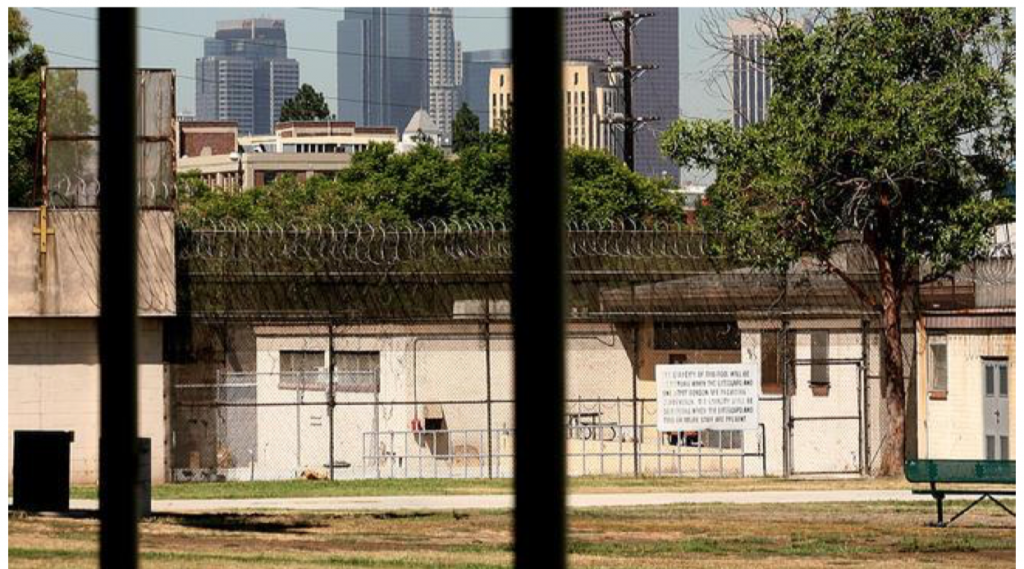




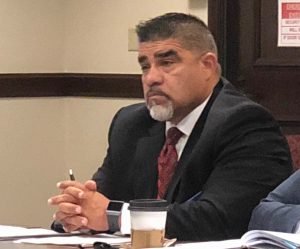
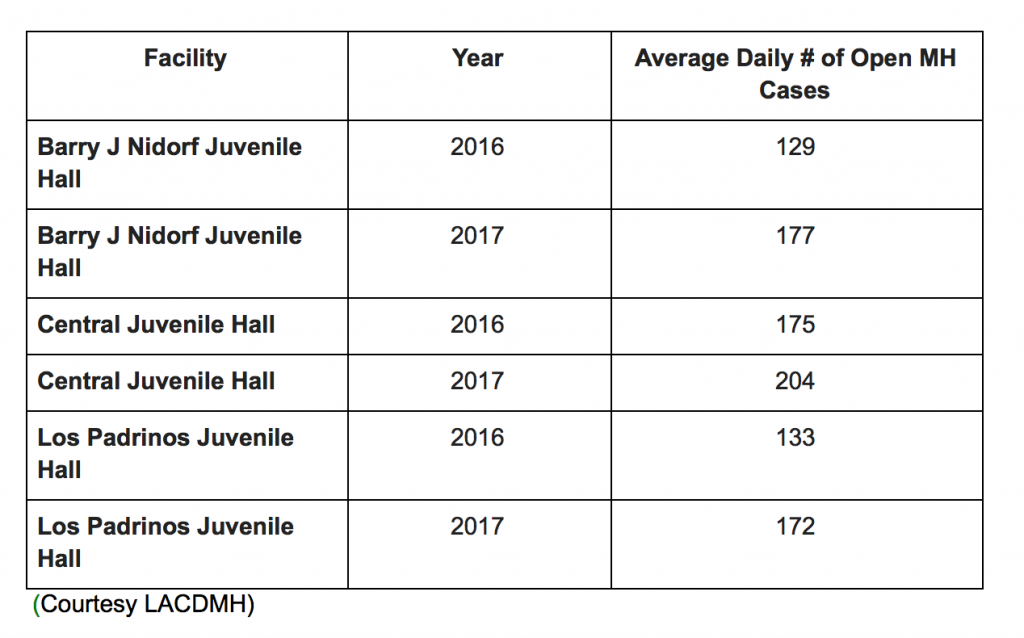
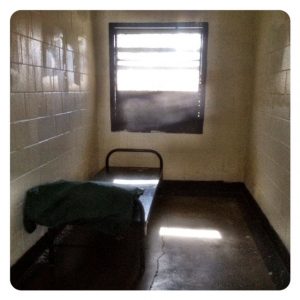
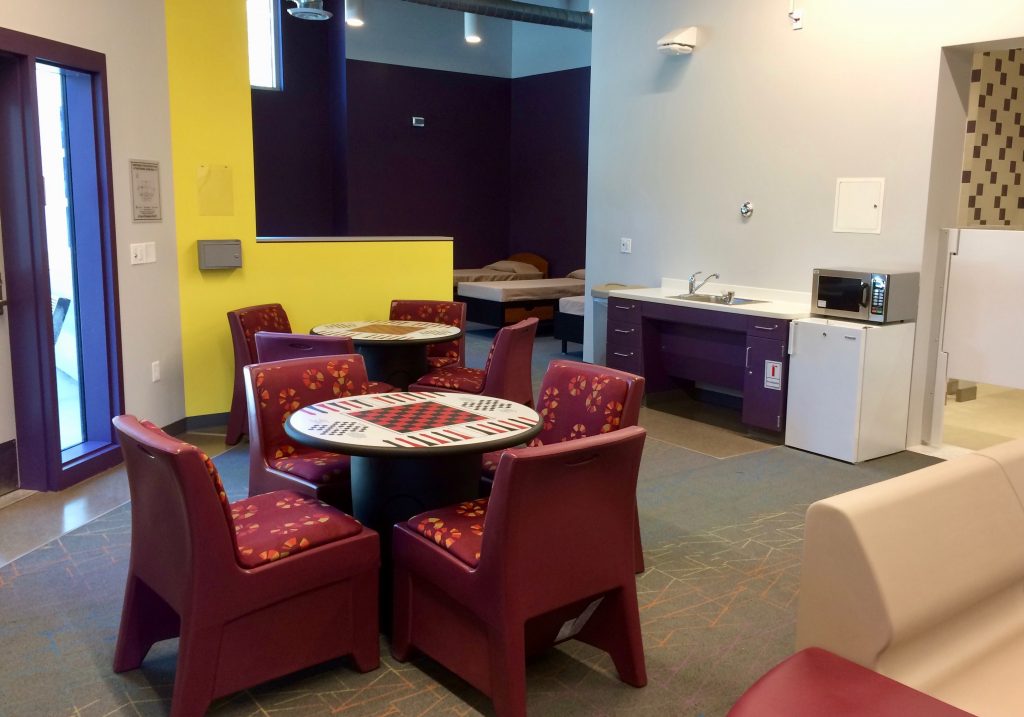
Assaults are way up in adult jails too. They’re up because it’s now acceptable to aggressively challenge authority , protest, block freeways, riot and assault the police. It’s actually socially acceptable.
The behavior then transcends into the custody environment.
What? the policies championed by clueless,middle aged,nice,liberal, white ladies doesn’t work ?Who could have seen that coming? Looks like the new buzzword catch all is “training”. Right up there with “deescalation”.
The closure of the Special Housing Units to appease the “myth” of solitary confinement was the beginning of the Bureau’s troubles. The erasure of behavior modification programs signaled the end of accountability to detained youth. The endless purge of staff members for protecting themselves and other youth created the easily observable fear and depression in the workplace. Hope Centers sit empty for lack of staffing. Finally, a beloved officer took his life because of the hopeless atmosphere he presided over. All of this because the of mismanagement. Get used to it, it’s the foreseeable future.
And to top it off officers with injuries caused by this dysfunctional department are getting harassed mistreated sent home on their own accrued time and forced to take a demotion
The author needed to interview some officers and not refer to them as staff! The lack of respect starts from the top! The attack on officers are on the rise because officers are being stripped of the tactics that were once at their disposal. Officers are walking on egg shell to respond for fear of losing their jobs! Minors are running wild with very little consequences! Administration doesn’t have a clue as to how to address important issues such as discipline and holding these minors accountable for their actions! The structure is gone! It’s an unsafe environment for the officers and the minors!
The lack of sound leadership and judgment at all levels plays a pivotal role in the deterioration of the department as we know it. After spending the last 30 years working the halls with populations aproaching nearly 900 in some cases and now down to barely 200, I’ve seen and heard all of these issues and arguments before. Children need and crave discipline with accountability. This makes for better adults. Society has made it a crime to discipline your own kids leaving them to believe there is no accountability or consequences for their negative behavior. Probation further removes incentives for juveniles to reform by removing any semblance of accountability or consequences for their behavior once they enter the system. Staff are left with few options. Continue to struggle with the daily frustrations of a no win situation, do the job as it should be done and possibly get fired, or just quit. How the BOS along with management can allow this to continue after so many years of failure is beyond any rational thinking persons comprehension.
JB…. Well said. The pure incompetence of the BOS and leadership of SEVERAL county entities is mind boggling.
The department falsified medical records to forcibly demote injured officers.
The children of today know that they can’t be touched and disciplined.Thepeople who are in charge of the correctional facilities are just appeasing the situations by not working these areas but letting the staff take the fall for the problems.they the higher ups should take the time to be in the staffs shoes to see how and it works and the HALL should not be a means to babysit mentally imbalanced kids who have the upper hand over their PEERS.meetings happen to show that your are taking responsibility to YOUR job so I say improve the conditions for the staff so they don’t get stressed.
I have worked for the Probation Department for 38 years prior to my retirement in 2015, I have seen it all assualts on staff, lack of response by upper management, cover-ups. I worked in Juvenile Hall (Barry Nidorf Juvenile Hall) for over 27 years and Camps for 11 years.
Grant it there has been staff that over reacted but in most part not many, I have prevented alot of incidences from occurring by stepping in at the right time. We had programs that worked and the tools were taken away from the staff which has resulted with the incidents and attacks on staff today, since my retirement I have noticed another the the lack of respect by these same Juveniles in the streets knowing we can’t do anything because the Juvenile detention is a joke and a majority know they won’t get locked up for long or not at all. I do want to say one more the not all Managers are bad but some of them also have their hands tied.
I managed and ran 5 camps and a juvenile hall over a period of 34 years. How things are being run by the higher ups is appalling. Its neither safe for the officers nor the juveniles housed there. The people calling the shots fail to take into consideration simple basics like discipline and structure for the safety of those minors who are housed there and the officers who work there.
I find what is going on in Los Angeles County to be almost insane. Personally I would not work under conditions where juveniles do what ever they want to do whenever they want to do it.
I know behind the scenes officers, supervisors and directors are trying their best to manage this under the toughest of circumstances. Best to you all.
You need people in charge making policies, that have actually done the job.
I don’t know what the programing is like now, but keeping juveniles active and engaged and not just warehousing them would help.
It helps to bring both officers and juveniles closer together through positive and comprehensive activities.
Articles like this are amazing when you also consider the fact their are folks who want to prohibit the use of OC spray in the juvenile halls. The article covering this was on this site not to long ago. It’s terrible that the start of zero discipline and accountability starts in the home, is reinforced in school, championed and even promoted in our society and disdain for authority figures supported in our penal system.
Those who wanted to create an impotent and toothless criminal justice system have succeeded. Hacks like the current probation chief and Sheriff are mere puppets to the worthless BOS which sways to whichever cause they think will give their regime mileage.
The mental health professions is clueless and keeps on allowing people to go diagnosed but untreated. Look at the numerous mass shootings that have occurred starting from Aurora, Sandy Hook, Parkland and the the most recent incidents in Tennessee. Individuals with diagnosed mental illness but who who still killed numerous people. What good is a diagnose if there is no effective treatment and innocent people end up dead? Oh…just prescribe legal analog versions of Meth and Heroine, they’ll fix you right up. Not a very good track record for the profession that claims to be able to treat broken minds.
Agreed Ed! That’s one of the big problems in the compound. Anger management classes, which are so important, are bible study. They need serious gang interventionists in there , arts and writing courses, life skills and intensive therapeutic counseling. Kids and staff need to be engaged. Right now it’s more reminiscent of the gladiator days of djj.
Getting rid of SHU was the worse thing that they could have done and time out I their room for negative behavior. We give our own kids time out-Room time, for negative behavior. And pepper spray means no physical abuse. A lot of the article was accurate. I give you that.
Shocking, I thought that only the crooked executives, at the sheriff’s department did it, like the Stephen Johnson type….
Absolutely…
This article sugar coats The Truth. The clueless authors of this article and RDA report need to “run a board” in unit MN for one week. The clueless authors need to talk ti Local 685 line staff to get the real picture of the disfunction of the institutions. The Truth is that there is a need for SHU. There is a need for structure and regimentation. And most importantly, there is a huge need for legal accountability in the courts and instituions. These whole limp-wristed, slap on the hand criminal justice policies are only setting the minors in general up for failure in life.
The Chief probation officer is a puppet of the BOS, and they’re both garbage. They’re only out to fire people and open investigations from incidents that happened a long time ago. Big Bird did it in the sheriff department, and now she’s doing it here…
Until the BOS and Probation Executives have one of these youth commit a crime against them (or someone the love), then that’s when real change is going to happen. Situational ethics is the name of the game. I remember for years P.O’s were trying to get armed in the field, and former BOS Antonovich opposed the idea; until one day a probationer shot up a Jewish elementary school. Immediately, Antonovich became active and assisted with spearheading the Probation DISARM unit. Simply put, no action was taken until someone attacked something that mattered to Antonovich. Probation policy is heavily influenced by philanthropists and child advocated. Although many of these groups have no experience dealing with the youth, they tell the probation puppets how to run halls and camps. The sentiment of the child advocates and philanthropists goes something like this: As long as we keep “them” out of our neighborhood, we can test nonsensical methods and policies, although we won’t be around to see how it turns out.
“Luis Dominguez said that bringing the newest employees to work in the halls is not a recent development. “The majority of staff come in through our juvenile halls,” he said. “That’s where our promotional ladders are.”…”
Oh, okay then – that makes it okay. Let’s just keep doing what has not worked well in years. The Department has had significant numbers of new hall employees quit. This comment just beautifully illustrates Probation Department top management. The same old excuses and no real thinking out of the box. Are there any real leaders left?
JB said it beautifully. There is a balance between structure and rehab efforts. These kids need both. Right now, they are often running the institutions and don’t think they don’t know it. It’s no accident that over the years, they have become increasingly assaultive. At the same time, the Department has become more punitive. So there are staff out all over behind injury, investigation or frankly, the desire to burn all available sick time and not be at work because the work environment is so negative.
In addition to obeying the orders of the court, the kids housed in Probation detention facilities need the following:
1. To learn to behave appropriately toward others – whether staff or peers.
2. To be held accountable when they engage in repetitive or serious misconduct. That means a penalty meaningful to them – time in SHU, time added to their program, a return to court, new charges, etc.
3. To improve their education.
4. To receive medical and mental health care as needed.
5. To EARN their way into special events/activities by good conduct. As in real life, nothing should be free.
Believe it or not, back in those horrible years where to hear it told now we were so abusive, we had safe facilities. We had staff that would hang out with kids on their free time and let them participate in special interest clubs. In camps, we took kids out hiking, into the community to a baseball or basketball game, out running, had music groups, movie groups, etc. Staff and kids had a good relationship. A lot of kids did well post release and would contact us after they left camp, as we were the first adults in their life that both set limits and cared about them. Now, it’s a joke – gang loyalties trump any loyalty to staff b/c staff are viewed as powerless. In custody, power matters.
Until the power shifts back to us as parents, like teens everywhere, these youth are going to take full advantage. In addition to them leaving as bad or worse as they arrived, this hurts the kids that really do want help. Staff are so tied up handling paperwork or running a unit short handed, that they can’t get to these kids. While there are surely some exceptions someplace, in general, EVERYONE is losing in our current custody model.
We need a Board and a Chief that understands the need to go back to basics. We need a Chief that does not come on the job proclaiming her interest in terminating a certain percentage of staff in order to send a message to the rest. Guess what…the only message sent is that she and her minions can’t sort out those staff that do need to find another line of work from those that need a slap on the wrist. Once again – no real leadership – only another self aggrandizing professional climber. LASD lucked out when she left.
Well said “Old and Jaded.” Hopefully, those in power will heed ur advice for what it is: practical steps that work from someone with years of direct experience and success.
Chief McDonald is out of touch. She’s not even following policy. McDonald’s words “fire them and let them fight to get their jobs back”. She’s fired some great people without allowing people to be trained, educated, etc. The top administrators are pulling a trump on our officers and doing what they want to do. Nobody is following the rules and no one is being forced to do so.
SHU is still in our manual, it’s still a policy, hasn’t been removed. Why?
Moral is down because promotions have stopped, people are stuck, even supervisors are looking for other careers. Probation is not a good place work these days. The lack of support needed to do the job isn’t there. Kids are being allowed to do whatever they want, this isn’t new to McDonald. What is she going to do to fix it?
You said it much better than me. Appreciate you insights.
This job SUCKS once upon a time I loved going to work. All you DIRECTORS and Administrators…. FU”K you for forgetting where you came from. Anyone looking to join this mismanaged circus… steer clear! I gotta take a dump, someone hand me the paper version of WitnessLA so I can wipe my Ass.
Great insights……However LASD was doomed when the BOS allowed the current probation chief to select her successor (utterly worthless) and anoint the current sheriff.
Concerned 1,
I worked with a a P.O. at ELA Gang unit 96″ 97″. He was working with the union for P.O.’s, at least the ones assigned to gang unit supervision, to be armed. Molina was the issue then. She was adamant about refusing P.O’s to be armed. LASD deputies were the units protection. Deputies backed them on taking numerous juveniles with a history of violence and a lot of times armed history back into custody.
I teach in the juvenile halls. The probation staff cannot structure or discipline a minor. My students can do whatever they want and all the adults can do is stand by and watch. How is this safe and what does this teach our young people? These are the children who need the most structure not the least. It’s always some white hero who doesn’t have a clue trying to save the poor minority kids. These clueless hero’s should work in a juvenile hall for a week. I bet they would change their tune.
I’m sure you believe that officers do their job without bias too. Bias infiltration is a huge part of law enforcement which causes protest. When authority is abusive it should be challenged. Address the cause don’t blame the victim
Right
Absolutely Agree!!
Absolutely!!!!!
So right! Poor management and lack of discipline and accountability for these kids creates the next generation of free labor. Alice Baileys 10 points of “ New World Order” she lays out the plan.
The Gospel…..politics!!!
Thank you, Mr. Anhalt you served well.
Not ppl who are political chess players. These “child advocates” have it twisted about these kids. CA’s have allowed their emotions to cloud their judgement. Kids need discipline, love not abuse true. Understand that parents and lack of parenting creating these behaviors in these kids not the deputy. We don’t work with children who stole candy from the store but rapist, assaultive, or even murderers.
New World Order plan…… check of Alice Baileys 10 point plan for the New Workd Order.
Bahahaha….. so true
Agreed
@Concerned 1 – I remember those days and you are absolutely right. I attended a rally and hearing at the BOS to arm DPO staff. Gloria Molina was not only unsupportive, she was incredibly rude. As people spoke, she literally strolled around the chambers chatting w/people. She paid no attention, could have cared less and once our special unit personnel were armed, refused to allow any armed DPO staff in her District. The only comment I recall her making that day is that if probation officers were armed, then they would be no more than deputy sheriffs. It was a demeaning remark. I wanted to ask her if she had ever looked down as she stuffed food in her mouth and noticed that Deputy Sheriffs protected her every day. Many thanks to those Deputies (and police officers) then and now that have worked with us in the street in an effort to help keep our communities safer.
@Teacher – I don’t know how you do it…God bless you and your colleagues for coming to work. You are so right on in what you have shared. These kids do need structure and the current lack of structure is unsafe.
I wonder what it will take for someone to hear and take appropriate action? Hoping for better days.
Pardon me – my comment above should have been directed to rwheels. Some days I don’t drink enough coffee. 🙂
Yeah….Molina was as much or bigger (literally and figuratively) Prima Donna than many of the BOS members. She protected who and what she cared about at the expense of the LA County taxpayers. She can also be credited with leading the charge to destroy the former Office of Public Safety as well. Many careers and lives were ruined by this horrible lady.
I spent years working in the Special Housing Units and the Staff there were exceptional..Their elimination and replacement with “cookies, milk, and sympathy,” and bright furniture, is not going to get through to a violent criminal delinquent kid that society has rules that need to be followed for the safety of others..Since these lessons are no longer taught, there is no correction..These ineffective policies are a direct reflection of Gov Jerry Brown’s soft position on crime and the Department’s inability to stand by years of successful youth rehabilitation. L.A. County’s best Programs were the Military structured ones..Staff were safe, the kids enjoyed their time there, picked up vocational and educational skills which included accelerated units and/or a G.E.D. They played sports, and learned to work together as a team..The 1-2 year recidivism rates were nearly non existent..They learned manners and skills on how to conduct themselves to seek employment..Kids would return, sometimes with their parents, thanking us for turning their son around..That is no longer the case today..Today, the Staff Academy training is militarized, while the kids are not allowed to be disciplined..It is as if the roles have been reversed, but to who’s benefit? The Department is therefore, failing in its obligation to serve the community and straighten these youth out so that they can have a shot at a Free and productive life..
I have worked in a juvenile facility for the past 20+ years as a line staff. When I first came on with this department we were in the top of our class for staff training, supporting staff, and putting officer safety first. It’s sad but over the past 10 years that fallen to the waste side. Officer safety is no longer a priority and little do they realize when the kids feel safe you have less incidents. Our assaults on staff have increased, riots have increased, and blatant display of defiance has increased. If the public new what was happening they would be outraged; the release of violated offenders, and the orders to not violate youth’s probation if they break their court orders. The people need to know that yes these are children however they are not in custody for stealing bubble gum…the type of kids we are working with are in for multiple shootings, caring weapons, carjacking’s, murders, sexual assaults. These kids are in the process of being adult criminals and we are now teaching them whatever they do is ok. We have a lot of clients that start with us and act however they want and get into the adult system and end up sitting down for 10 years because their types of violent crimes. The numbers are lower in some juvenile halls in CA however the crimes rates are increasing, the amount of violent crimes are on the rise and we as the probation department are not offering any help or support for the parents and families.
I spent my whole adolescences in the system in juvenile halls from east lake central juvenile hall to Barry j I completely agree with each and every one of you guys if I had a lil more structure while I was in the facility’s mostly activity’s I would have been better off I unfortunately graduated to county jail and prison after doing 5 years I was released with a new out look on life After getting off parole in 11 months I got a job and had a son I now have three kids and happily married but I know both sides to the struggles of juvenile hall and I’m great hopes I good be someone to help implement a program for those staff members
Los Angeles County supervisors, eliminate the LA Co Probation Department. It does not work and has gotten from bad to horrible. At its incipience it might have been a good social experiment. Civility in the US is now practically gone. Policy makers used to be excellent thinkers and earned their positions by recognized success, by merit. Civil service is no longer what it was. It was mpartial, a system of merit. Now, it is a good ol’ boy or girl club. The people of LA Co vote carefully when voting for your policy-makers. Those who are currently in office are arrogant know-nothings. Unfortunately, line staff, you can’t elect the probation “executives. You have to live with their inane and dangerous decisions, which change quicker than the seasons. From one month to the next, you won’t know what policy is. Governor Newsom effectively eliminates the death penalty. I say eliminate state parole, as well.
30 years as a L.A. Co. D.P.O. ; worked at Maclaren Hall , CJH, ( total of 3 years in J.H. ), Camp Munz, Camp Afflerbaugh and Camp Smith and retired in 2002. My style was always firm but fair and i let the JH wards and Camp wards know that DPO’s were in charge of the program and not the way it is now wherein the wards are given the idea that they are the policy maker’s. All the affirmative action hiring and promotions to weak and unqualified staff was the downfall of the department and that is the truth and not a bit of racial intention involved. Morons for Supervisors and Directors was the norm. Happily retired in Thailand with my wife.
I failed to mention that when the Probation Dept. brought in female DPO’S to work in the Probation Camps in the 1970 that was the beginning of the end for the department; female staff are not suited to work in male ward camp programs. Sorry, just more of the liberal milk and cookie attitudes promoted by those who know nothing about the workings of a Probation Camp. Check out my previous comments about the departments affirmative action hiring and promotional decisions and now you see the end result. Some of the finest DPO’s i have worked with during my 30 year career were non-whites but the vast majority of non-white DPO’s were totally worthless and caused more problems and were involved in more assaults and unfair treatment towards the juvenile camp wards all due to the big liberal affirmative action priorities. I have been retired over 18 years an i still laugh at the incompetent fools i had to work with in the last 10 years of my service but boy were we ever affirmative actioned with cookies and milk on the way.